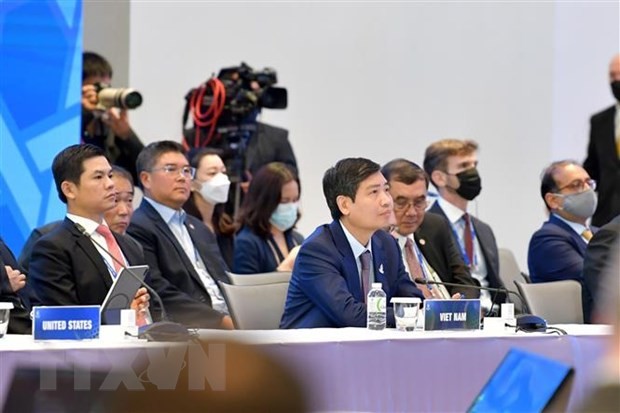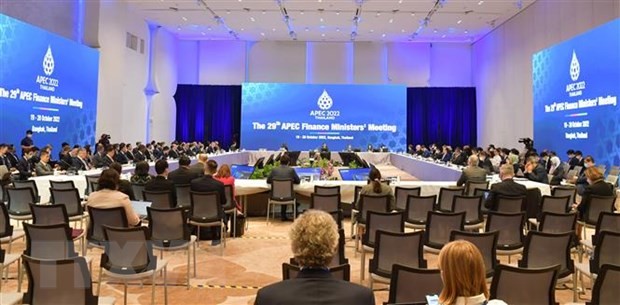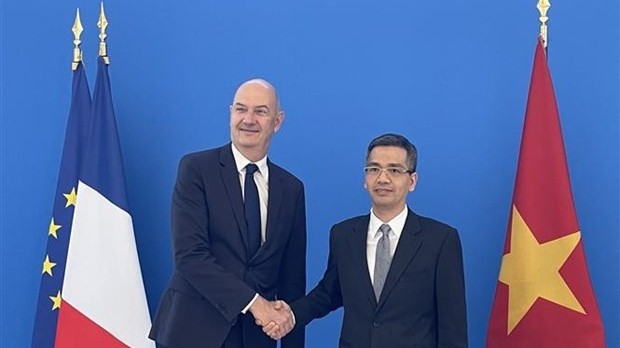
Vietnam attends 29th APEC Finance Ministers’ Meeting
Latest
 |
| Deputy Finance Minister Ta Anh Tuan led a Vietnamese delegation to attend the 29th APEC Finance Ministers’ Meeting in Bangkok. (Photo: VNA) |
Vietnam's third-quarter gross domestic product grew 13.67% from a year earlier, raising its nine-month GDP growth rate to 8.83%, he said.
According to Deputy Finance Minister Tuan, Vietnam's proactive, flexible and effective management of fiscal and monetary policies has contributed to curbing inflation, maintaining macroeconomic stability, and creating momentum for economic recovery.
In order to promote growth, strengthen the economy's resilience, ensure macroeconomic stability and national financial security, Vietnam will prioritise manage financial policies associated with perfecting regulations on mobilising national financial resources, strictly controlling the State budget deficit and public debt, and contributing to improving the resilience of national finance, he said.
The Vietnamese official also said that the contents of cooperation and international experience at the 29th APEC Finance Ministers’ Meeting is particularly practical to the current vision and mission of the Ministry of Finance.
 |
| Vietnam attends 29th APEC Finance Ministers’ Meeting. (Photo: VNA) |
Themed “Advancing Digitalisation, Achieving Sustainability”, the meeting attracted the participation of more than 200 representatives from 21 APEC member economies and international organisations.
Participants at the event discussed economic and financial prospects and shared views on collaborative policy actions to achieve the Putrajaya Vision 2040, including the approval of the Aotearoa Action Plan with a view to developing an open, dynamic, resilient and peaceful Asia-Pacific community by 2040, for the prosperity of all its people and the future generation.
The meeting reviewed and discussed the implementation of the 2022 initiatives namely "Sustainable Finance" and "Digitalisation of the Economy".
Thai Finance Minister Arkhom Termpittayapaisith affirmed that creating conditions for all economic sectors to have access to sustainable and effective finance is especially important to achieving inclusive and sustainable economic growth while fully harnessing the power of digitalisation for inclusive fiscal policy, including reducing the digital technology gap between different socio-economic groups.
Participants also shared their opinions on the economic situation in the post-COVID-19 period, positive and negative factors for economic recovery, and discussed financial policies to promote growth, focusing on the implementation of "Sustainable Finance" and "Digitalisation of the Economy".





















